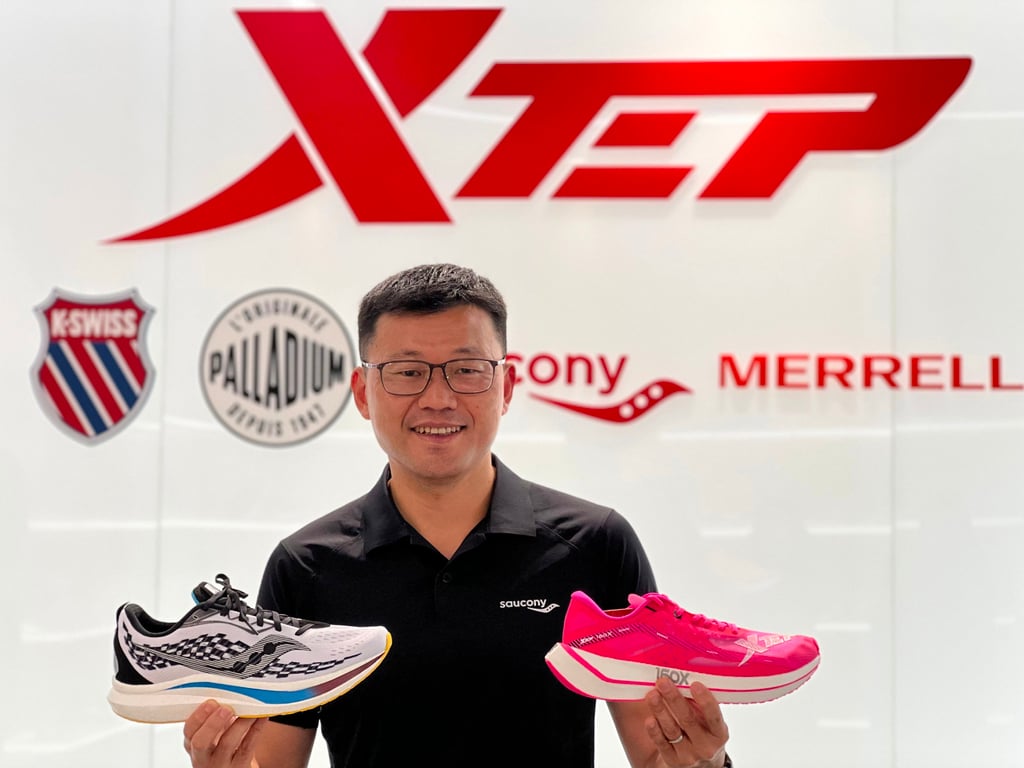Chinese Nike rival Xtep leverages social media, live-streaming to set record sales, downplays popular digital tokens
- Xtep is banking in the influence of social media and live-streaming to help drive the next record in annual sales under its 2021-2025 growth plan
- The owner of K-Swiss, Merrell and Saucony brands reported its best interim results since its Hong Kong listing in June 2008

The company, whose brands K-Swiss, Merrell and Saucony competes with Nike and Adidas globally, is also seeking to open bigger retail stores to complement its e-commerce efforts and close smaller outlets, chief financial officer Ricky Yeung said during a media briefing last week.
“This method is a solution for [boosting] sales and profitability and expanding the reach of our shops. The number of Xtep-branded stores have not increased by a lot, but sales have been rising” so far, he said in an interview. Xtep has worked with landlord Wanda to lease 300 to 400-square metre stores, he added.

Based in Xiamen in south-eastern Fujian province, Xtep aims to achieve 24 billion yuan of annual sales by 2025 to compete with bigger rivals at home. Li Ning had 12.4 billion yuan of sales in the first half of 2022, while Anta Sports Products booked 26 billion yuan, according to exchange filings.